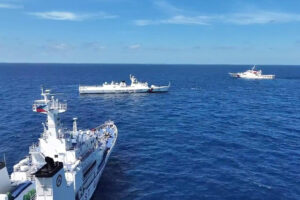
Exporters see weak agriculture, tensions with China as drags to growth
EXPORTERS said a weak agriculture sector and tensions with China are serving as a drag on export performance, alongside high-power prices.
The Philippine Exporters Confederation, Inc. (Philexport) said the year began on a positive note, but a slowdown gradually set in.
“During the beginning of the year, (exporters) were very enthusiastic. They raised their targets, but towards the end of the year, they have had to catch up on orders and deliveries. When the first quarter came, things sort of tapered off,” Philexport President Sergio R. Ortiz-Luis, Jr. told reporters on the sidelines of an event.
Exports in March declined 7.3% to $6.13 billion, from a year earlier the weakest reading since the 13% contraction in November.
In the first quarter, exports rose 4.8% to $17.98 billion, the Philippine Statistics Authority reported.
“Slowly but surely, (exports) will increase, but not to the level that we would like to be,” Mr. Ortiz-Luis said, noting that investors are deterred by issues with agriculture as well as the South China Sea dispute.
When asked if the Philippines can still hit its P143.4-billion export target under the Philippine Export Development Plan (PEDP), he said: “Not in the original time frame. It will take quite a while.”
Mr. Ortiz-Luis has said the Philippines may hit its export target in three years.
Under the Philippine Development Plan, exports are expected to hit $107 billion this year, with $61.58 billion in merchandise exports and $45.42 billion in services exports.
Last year, Philippine exports amounted to $103.6 billion, below the $126.8-billion goal set in the PEDP. It also failed to hit the 5% growth target set by the Department of Trade and Industry last year. — Beatriz Marie D. Cruz



